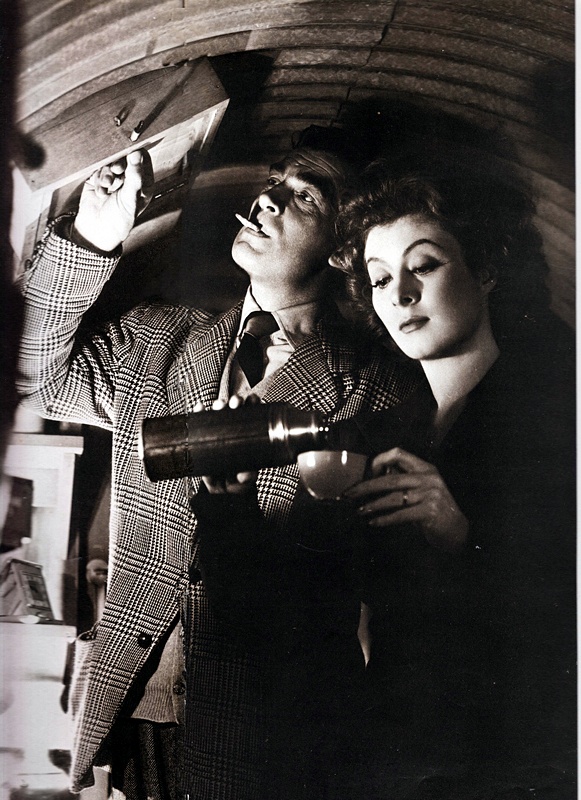Mrs Miniver was one of the most culturally significant films at the time. Churchill said that this film had done more for the war effort than a flotilla of destroyers, and Roosevelt even had transcripts of the now famous closing speech dropped on enemy territory. Director Wyler happily admitted he made the film for propaganda films in order to draw America into the war.

Famous scenes of the film include Garson finding a German spy in her garden and capturing him, the son heroically deciding to join the war and the aforementioned closing speech. I’m not sure what the impact of such an obvious piece of propaganda would be if it was released today, but as a piece of war time propaganda it’s an interesting watch if nothing else.
Greer Garson is really strong in the title role and provides a central character who is delightful to watch and convincing throughout. It is understandable why she is clearly a local figure who everyone seems to adore. The supporting cast are equally watchable, especially Teresa Wright as the son’s love interest, and it’s a shame that Walter Pidgeon as Mr Miniver does not have more to do in the film. One comment on this is that there are some deeply suspicious British accents, which at times ruins the effect of a quaint English village.
I enjoy ‘Mrs Miniver’. It’s one of those frightfully nice films where everything is super and everyone drinks sherry, but with the dark cloud of war hanging over it. I’m not convinced that it’s a brilliant film as there is nothing particularly spectacular about it, and the total lack of subtlety means that it could not be discussed as a cinematic great. It is, however, a very interesting film to watch and put in context. To a world in the middle of a war, this film must have been very poignant, and as a piece of propaganda it is fascinating to watch. It was also by far the highest grossing film of 1942, which means that it must have been pretty effective as well.
No comments:
Post a Comment